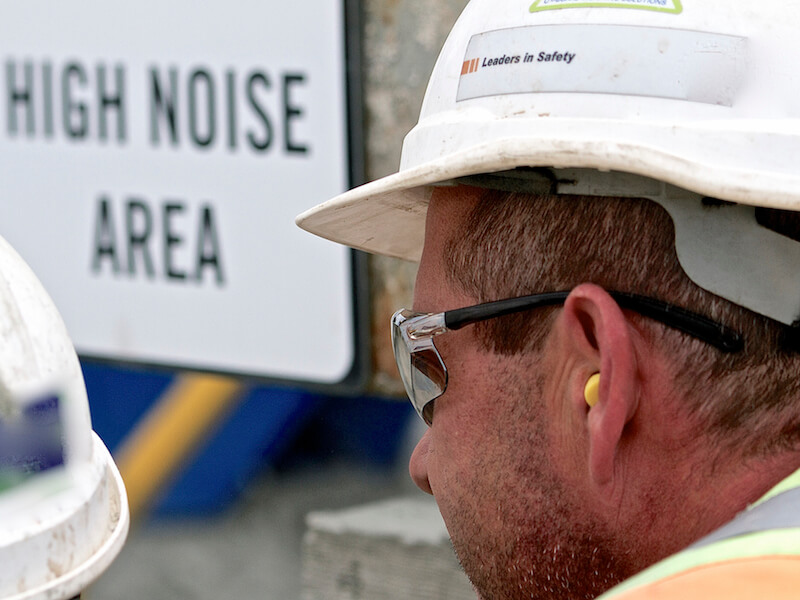
A noisy workplace isn’t all that great for your ears (or your concentration, for that matter). Even modest noise, when experienced for many hours a day, can begin to weaken your hearing health. This is why questions like “what hearing protection do I need?” are worth asking.
Many of us probably didn’t even know there were numerous levels of hearing protection. But when you take a moment to consider it, it makes sense. A jet engine mechanic is going to require a different level of protection than a truck driver.
Hearing Damage Levels
The general rule of thumb is that 85 decibels (dB) of sound can begin damaging your ears. Putting sound into context with regards to its decibel level and how harmful it is, isn’t something most of us are used to doing.
When you’re sitting in your car in city traffic, that’s approximately 85 decibels. No biggie, right? Wrong, it’s a big deal. At least, it’s a biggie after eight hours. Because the duration and frequency of exposure are very significant when it comes to damaging exposure to noise.
Typical Danger Zones
It’s time to think about ear protection if you’re exposed to noise at 85 dB or more for 8 hour days. But that isn’t the only threshold you should be aware of. If you’re exposed to:
- 90 dB (e.g., lawnmower): injury will begin to happen to your ears if you’re exposed to this volume of noise for 4 hours a day.
- 100 dB (e.g., power tools): Anything above one hour is considered harmful to your ears.
- 110 dB (e.g., leaf blower): Injury to your hearing happens after 15 minutes of exposure to this noise level.
- 120 dB (e.g., rock concert): Any exposure can cause damage to your hearing.
- 140 dB (e.g., jet engine): This amount of noise will lead to immediate harm and most likely pain to your ears.
You’ll want the ear protection you choose to be sufficient to bring the decibel level below that 85 dB level, especially if you’re exposed to those sounds for any amount of time.
Make Sure Your Hearing Protection Fits Comfortably
The effectiveness of hearing protection is quantified by something called a Noise Reduction Rate, or NRR. Outside sound will be progressively quieter the higher the NRR.
Most workplaces will have recommendations as to what level of protection will keep your hearing safe because it’s essential to have the right protection.
Comfort is also an important factor to take into consideration. As it happens, comfort is extremely significant to keeping your ears healthy. This is because you’re not as likely to actually wear your hearing protection if it isn’t comfortable.
What Are my Hearing Protection Options?
There Are Basically Three Options:
- Earmuffs.
- Earplugs that sit within the ear canal
- Earplugs that sit just outside of the ear canal.
Each type of protection has advantages and disadvantages, but personal preference is often the deciding factor. Earmuffs are the best choice for people whose ears are irritated by earplugs. For other individuals, the ability to put earplugs in and leave them in is a better solution (obviously, you won’t want to forget them for too long… you should take them out at the end of your workday. And clean them).
Consistently Use Protection That Works Best For You
Any laps in your hearing protection can lead to damage, so comfort is a significant factor. If earmuffs are scratchy and uncomfortable you’re more likely to take them off for short periods and that can have a negative impact on your hearing over time. So the most important decision you can make is to choose hearing protection that you’re comfortable leaving in place during your workday.
You’re ears will remain happier and healthier if you find the correct degree of hearing protection for your situation.
Call Today to Set Up an Appointment
References
https://www.cdc.gov/nceh/hearing_loss/what_noises_cause_hearing_loss.html
